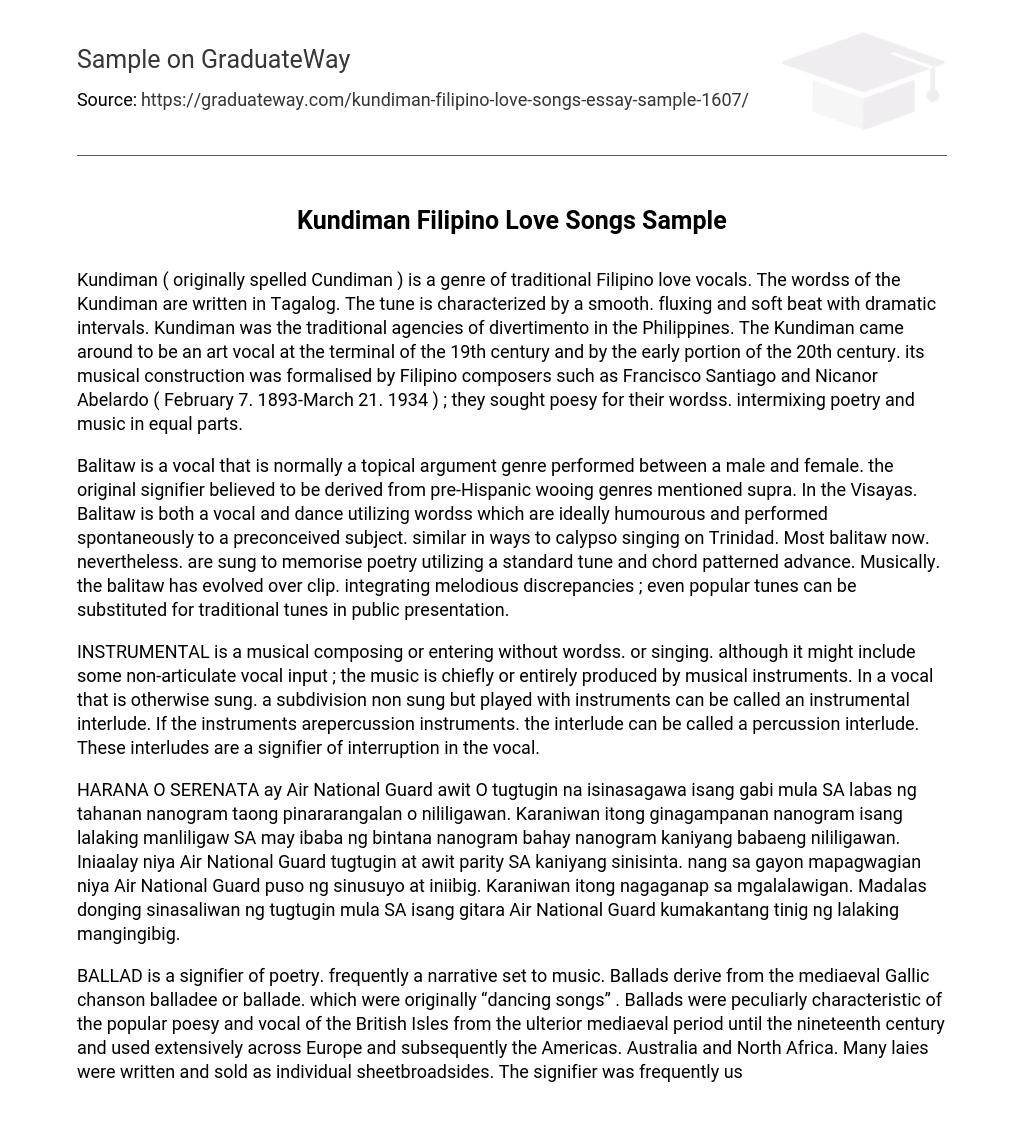Kundiman (originally spelled Cundiman) is a genre of traditional Filipino love vocals. The words of the Kundiman are written in Tagalog. The tune is characterized by a smooth, flowing, and soft beat with dramatic intervals. Kundiman was the traditional means of diversion in the Philippines.
The Kundiman became an art vocal at the end of the 19th century and, by the early part of the 20th century, its musical structure was formalized by Filipino composers such as Francisco Santiago and Nicanor Abelardo (February 7, 1893 – March 21, 1934); they sought poetry for their words, blending poetry and music in equal parts.
Balitaw is a vocal that is usually a topical argument genre performed between a male and female. The original form is believed to be derived from pre-Hispanic wooing genres mentioned above. In the Visayas, Balitaw is both a vocal and dance using words that are ideally humorous and performed spontaneously on a preconceived subject, similar to calypso singing on Trinidad.
However, most balitaw now are sung to memorize poetry using a standard tune and chord progression. Musically, the balitaw has evolved over time, incorporating melodic variations. Even popular tunes can be substituted for traditional tunes in performance.
Instrumental is a musical composition or recording without words or singing, although it might include some non-articulate vocal input. The music is mainly or entirely produced by musical instruments. In a song that is otherwise sung, a section not sung but played with instruments can be called an instrumental interlude. If the instruments are percussion instruments, the interlude can be called a percussion interlude. These interludes are a form of break in the song.
Harana o Serenata is a song or music performed one evening outside the home of the person being honored or courted. It is usually performed by a male suitor at the window of the house of the woman he is courting. He dedicates a song and music to his beloved in order to win her heart. This is usually done in the provinces and is often accompanied by music played on a guitar and sung by the male suitor.
Ballad is a form of poetry, often a narrative set to music. Ballads derive from the medieval French chanson balladee or ballade, which were originally “dancing songs”. Ballads were particularly characteristic of the popular poetry and song of the British Isles from the later medieval period until the 19th century and used extensively across Europe and later the Americas, Australia, and North Africa.
Many ballads were written and sold as individual sheet broadsides. The form was often used by poets and composers from the 18th century onwards to produce lyrical ballads. In the later 19th century, it took on the meaning of a slow form of popular love song, and the term is now often used as synonymous with any love song, particularly the dad or rock power ballad.





